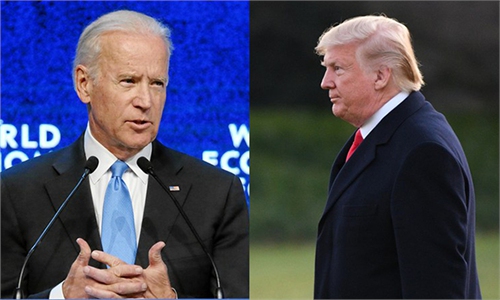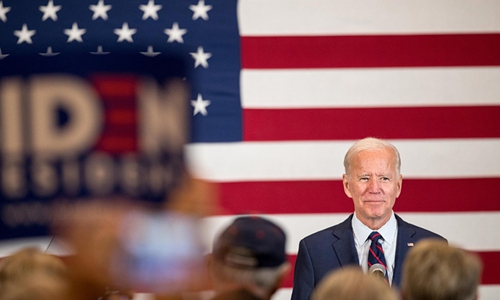
File photo
With its retail sales hitting a record high of 41.2 trillion yuan ($6.26 trillion) in 2019, China will soon surpass the US as the world's largest retail market for consumer goods, Lian Weiliang, deputy chief of the National Development and Reform Commission, China's top economic planner, said on Sunday.In recent years, the consumption scale gap between China and the US has been narrowing, and since China's consumption has grown much faster than that of the US, many institutions have made various forecasts with regards to when the shift in title of the world's biggest consumer market will take place. The reason why the market is so concerned about this timing is that the overtake of the consumption scale will be of great significance to the global political and economic situation as a whole.
To a certain extent, Lian's remarks this time could be considered as a semi-official confirmation that China is almost certain to overtake the US as the world's largest consumer market this year.
In the coming weeks, US president-elect Joe Biden is expected to nominate an economic team, which will probably offer some clues for predicting US economic policy under the incoming administration. In particular when it comes to its bilateral economic and trade relationship with China, then we sincerely hope China's consumption factor could be taken more seriously in the next administration's decision of the direction of its China policy, as the consequences and losses of decoupling would be larger than one could imagine.
In the post-pandemic era, China is most likely to be one of the main growth engines of global consumption. If the US government continues to push for a decoupling, it means that their businesses need to first be prepared to give up the world's most promising market that is on fast recovery track, which is apparently infeasible. Moreover, a decoupling between the US and China also means the rest of the world will be forced to choose sides in one way or another, and with China to become the world's largest consumer market, more and more countries will not necessarily side with the US.
In this sense, the shift of the biggest market title from the US to China may bring far-reaching changes to global politics and economics as China's market space will become an important factor that cannot be overlooked by various parties in handling their relations with China.
China's rise as the largest consumer market represents not just geopolitical movement at the macro level, it may have also lead to more concrete changes at the microeconomic level. The Black Friday shopping season is a typical window for observing such changes, with the increasing participation by Chinese e-commerce platforms. While the Black Friday sales in the US looked very different this year, Chinese e-commerce platforms have embedded more localized characteristics to this Western shopping festival to make it a new shopping bonanza for Chinese customers.
It will be inevitable for the upcoming Biden administration to face the growing pressure from Chinese consumers' spending power over time. As observers generally define US-China relations as "cooperative competition," the US administration needs to ponder how to carry on the benign competition while resetting US-China ties.



